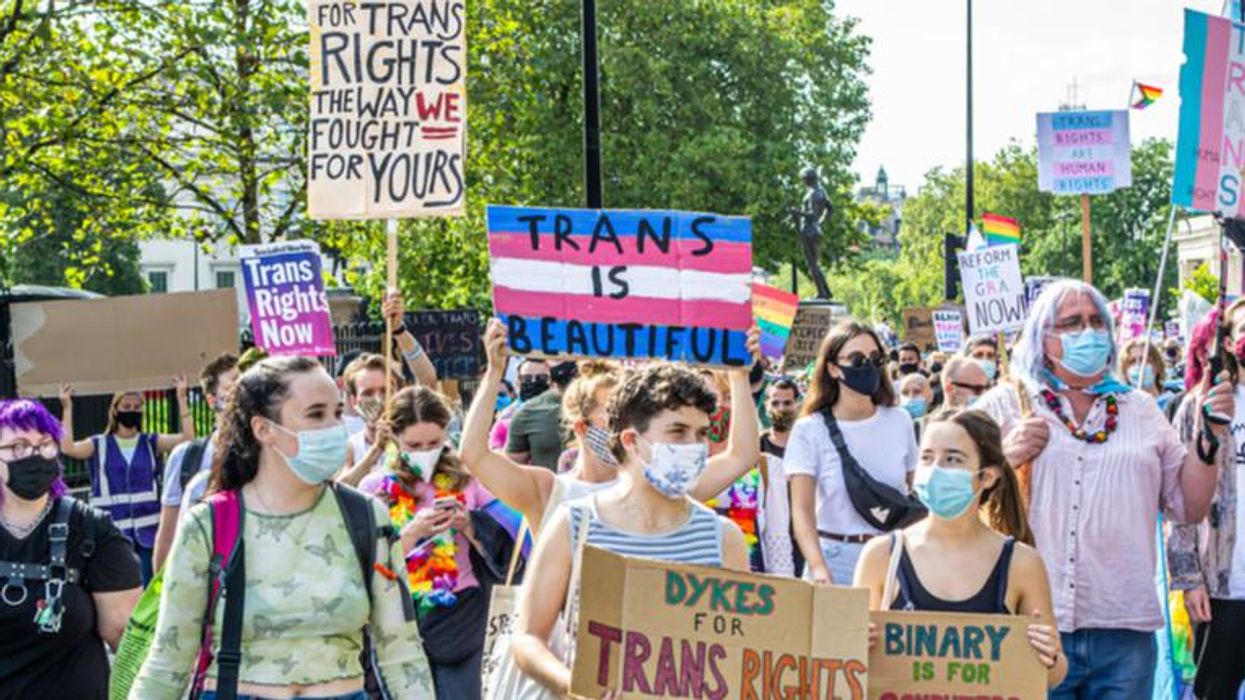
Image via Shutterstock.
John Stoehr November 22, 2022
Ben Collins is a reporter for NBC News. He’s known for covering the “dystopian beat.” On MSNBC this morning, Collins talked about the Colorado mass shooting over the weekend. A 22-year-old white man had entered an LGBT-plus bar, killed five and wounded 25. Anderson Aldrich was indicted Monday on charges of murder and hate crimes.
Collins was clearly moved by the incident. After reading a long series of headlines, about the threats to America’s LGBT-plus community by the Republicans, rightwing demagogues and redhat propagandists (those are my words), he asked:
What could I have done different?
Seriously. As reporters, what can we do different? Because there are five dead people in a strip mall. That’s the only place they felt safe as gay or trans people in Colorado Springs. …
I think we have to have a come to Jesus moment as reporters. Are we more afraid of being on Breitbart for saying trans people deserve to be alive? Or are we more afraid of the dead people?
Collins’ point is well taken. Journalists must have the courage to say what needs saying – that trans people have a right to life, liberty and happiness like everyone else. Journalists also need the backing of their employers. Sadly, because employers often share the opinions of Republicans, reporters often get thrown under the bus.
READ MORE: NBC reporter urges 'come to Jesus moment' for media in wake of Colorado Springs anti-LGBTQ mass shooting
So far, Collins is lucky.
And I disagree.
Courage is good, politics is better
The problem isn’t about courage or lack of it. It’s more fundamental. If we don’t understand the fundamental – especially if journalists don’t understand it – we can hardly come up with a good solution.
READ MORE: 'Very dark': Reporter nails Fox News for going right back to hate speech that sparked Colorado massacre
What’s the problem? An underlying assumption.
What assumption?
That journalists’ choices are made in a vacuum.
They are not. They are choices made among other choices made that altogether constitute what our society considers to be “normal.” These choices are political on account of having been made by and among other human beings who are themselves making choices according to their values, prejudices, preferences and interests.
Journalists who are employed by right-leaning employers are deathly afraid of accusations of bias. But accusations of bias assume that the status quo (“the way things are”) is politically neutral. The status quo is never politically neutral. This claim is evidenced by those who accuse reporters of bias. Their accusations protect the status quo.
Journalists’ choices are made among other choices made. The question isn’t about bias, because the entire concept of bias is made meaningless when seen in an always already political context.
The question isn’t about the choices reporters make and whether they are “politically neutral.” (That’s make-believe.) The question is about the nature, character and purpose of the politics in question.
“Trans people deserve to be alive,” Collins said.
His point about courage is good.
But his politics is better.
“Fleeing a displeasing truth”
Reporters shouldn’t fear being on Breitbart or other rightwing media, Collins said, “for saying that trans people deserve to be alive.” They shouldn’t fear, because there’s nothing political about saying it.
Seems like commonsense, doesn’t it?
It isn’t.
It’s denial.
Saying “trans people deserve to be alive” is totally political on account of rightwing politics believing it to be. Neither Collins nor anyone is going to stop rightwing politics from being what it is. Separating “good people” who deserve reward from “bad people” who deserve punishment, well, that’s the point of rightwing politics.
Collins means well, I have no doubt.
But saying “trans people deserve to be alive” is a choice. Choices are the product of politics. This choice refuses to see “a displeasing truth,” philosopher Lewis Gordon once said. It hopes to avoid confrontation by make-believing that it’s not confrontational.
Without meaning to, Collin contributes to the “bad faith” that’s central to the rightwing project and that ultimately constitutes the “edifice of how oppression is constructed,” Professor Gordon said.
“Bad faith is a flight into a pleasing falsehood in order to avoid a displeasing truth,” he said. “That avoidance – that evasion – actually plays a role in maintaining those systems of oppression.”
Insisting that politics isn’t political affirms the claim that the status quo is politically neutral. That, in turn, empowers the accusers of bias. That protects a status quo that produced five dead people.
Collins is right in that journalists must have courage.
But it’s courage to face “a displeasing truth.”
No comments:
Post a Comment